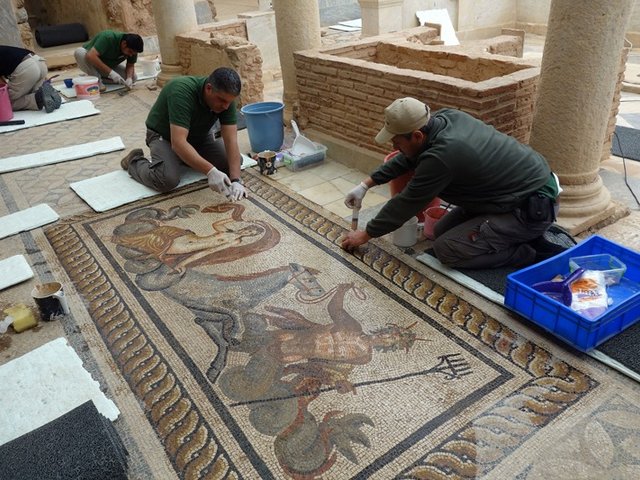A three-day official bash to commemorate the 100th anniversary of the Austrian excavation of the renowned Ephesus archaeological site in Turkey succumbed to high-level politics and was officially boycotted by the Turks, leaving the Austrians to celebrate alone. Just days before the festivities, scheduled for the weekend of 22-24 September, 1995, the Turkish Ministry of Foreign Affairs overrode the plans of the Turkish Cultural Ministry to participate in the on-site celebration, forbidding any official Turkish participation and calling into question the future role of the Austrians in the Ephesus excavations.
The gesture was apparently intended to punish Austria for allowing the PKK (Kurdish Workers Party) to hold recent political congresses in Vienna and to coerce an official Austrian denouncement of the PKK as a terrorist organisation.
According to officials within its Cultural Ministry, Austria was completely surprised by the announcement and hastily cancelled all official centenary plans. Instead, a low-key private ceremony was held in Ephesus among members of the Austrian Archaeological Institute, the Society of the Friends of Ephesus and Turkish private citizens with concerts among the ruins and special tours of the principle areas of excavation. The Ephesus Museum of Selcuk presented a copy of its spectacular second century AD “Artemis Ephesia” (or “Beautiful Artemis”) statue to the Ephesus Museum of Vienna and in exchange received a copy of a selection of the famed Parthian reliefs (depicting the Parthian wars). These friezes, considered the top finds at Ephesus, after the two Artemis statues, have resided in Vienna since 1903. The only centenary festivity accessible to the public was the upbeat and highly-praised collaboration between thirteen Turkish and Austrian artists “The Imagination of History”, sixteen site-specific installations spread all over the ruins and on display for three weeks.
No official Austrian denouncement of the PKK has been issued and both Turkish and Austrian diplomats refuse to comment. Austria's current license to excavate Ephesus expires at the end of 1995 and a renewal for 1996 is being actively sought. Erwin Lucius, Chief Attaché, Austrian Cultural Affairs Office for Turkey, speaking from Istanbul, said that Mr Özgen, General Director of Museums and Antiquities, had recently agreed verbally to renew Austria's license for 1996 but that the agreement could easily falter in the coming weeks. The resignation of Turkish prime minister Tansu Ciller on 21 September has left an interim government in power but either of its acting Ministers of Cultural Affairs can veto the license. Elections for a new prime minister, likely to create yet another turnover of high-level officials, are expected in March or June 1996. Ideally, the Austrians will stay in Ephesus through the changes in government and the PKK issue will drop away, said Lucius.
The Austrian Archaeological Institute's involvement in Ephesus began in 1895 with Otto Benndorf, who obtained permission from the Turkish Sultan to excavate the site and later purchased a large portion of the city. This land was subsequently nationalised by Ataturk, but most of the finds unearthed between 1905 and 1922 reside in Vienna in its Ephesus Museum. From 1923 onwards, it became illegal to take any finds out of Turkey. In 1954, the Ephesus Museum started excavating and restoring in Ephesus and began its close collaboration with the Austrians.
To date, only 10% of the vast site has been excavated but it is magnificent enough to draw some 6,000 tourists daily. No successor to the Austrians has been named and they continue to work on the site as part of a seventy member team of international experts under the direction of Dr Karwiese.
Originally appeared in The Art Newspaper as ‘Thanks Austria, but no cake'


